Additional information
| Weight | 1 kg |
|---|---|
| Dimensions | 11 × 11 × 11 cm |
| Shipping Time | 10-15 Days |
₹350.00 Original price was: ₹350.00.₹280.00Current price is: ₹280.00.
Challenging the reader to take control and to stop hiding behind excuses for a bad night’s sleep, neurologist W. Chris Winter explains the basic, often counterintuitive rules of sleep science. Dr. Winter explores many revolutionary findings, including surprising solutions for insomnia and other sleep disturbances, empowering readers to stop taking sleeping pills and enjoy the best sleep of their lives. Written in a clear and entertaining way, The Sleep Solution contains tips, tricks, exercises, and illustrations throughout. Dr. Winter is an international expert on sleep and has helped many thousands of patients―including professional athletes―rest better at night. Now, he’s ready to help you.
“[Winter’s] well-written explanation of what sleep is and what can disrupt it shows how to make the most of the sleep you do get.” —Library Journal (starred review)
“Until I met Chris Winter, I slept like a baby: I woke every two hours and cried. Then Dr. Winter helped me develop sleep rituals that knocked me out. He was my sleep solution; this book will be yours.”—Peter Moore, New York Times Bestselling Coauthor of the The Eight-Hour Diet and Former Editor of Men’s Health
“Dr. Winter has spent his career bringing attention to the benefits of sleep, and for the first time, this book brings it all together. He has written an important resource for those of us in the field of professional sports as well as ordinary people who aren’t experiencing the full benefits of sleep. His professional experiences and research have assisted with bringing to light the impact sleep has on our athletes within their sport.”—Ben Potenziano, Assistant Athletic Trainer, Pittsburgh Pirates, and Former Strength and Conditioning Coordinator, San Francisco Giants
“Chris is world-class in his field; he is incredibly pragmatic in his application of medicine to real-world, high-performance settings.”—Mark Simpson, Director of Performance, Los Angeles Clippers
“A fresh, comprehensive look at the vital nature of good sleep and its relation to our thriving wellness.”—Herm Schneider, Head Athletic Trainer, Chicago White Sox
“Dr. Chris Winter’s new work, The Sleep Solution, is a jewel of a book for anyone who has struggled with sleep issues.”—Ron Adams, Veteran Assistant Coach, Golden State Warriors
“Dr. Winter is our go-to sleep specialist. In The Sleep Solution, you will find much of what he has shared with our athletes as he has helped us navigate the rigorous NBA schedule.”—Donald S. Strack, DPT, ATC, Director of Medical Services, Oklahoma City Thunder
“In the baseball industry, the travel, change in time zones, and just sleeping in a different bed are not easy. I have leaned on Dr. Winter many times. Thank you, Chris.”—Ron Porterfield, Athletic Trainer, Tampa Bay Rays –This text refers to an out of print or unavailable edition of this title.
Sleep Schedules: I’d Love to Stay and Chat, but I’m Late for Bed
I have been asked frequently over the years the following question: “What is the single most important piece of advice for achieving your best sleep?” To me, it’s easy: pick a wake up time and stick with it!
When I ask you, “What time do you wake up in the morning?” the answer should be one simple time. If your answer to that question is, “I get up at 6:45 and usually go to the gym or run outside,” you get a gold star.
However, you probably have a problem if you answer something like this: “I usually go to bed at 11:00 except on the weekends when I go out with my friends and we stay out until 2:00 or 3:00 easily. I’m usually up around noon . . . no later than 2:00 p.m. on those days. On Tuesdays I try to go to bed early, like 9:00 because on Wednesday, I have to get up early for this boot camp exercise class. On those days, I go out to my car at lunch and sleep for forty-five minutes. I feel pretty beat by the end of the week and often fall asleep early in the evening. If I do, I struggle to stay asleep and often have trouble falling asleep later. It’s really hard to get up for work on Monday . . . I’m often late. Every now and then, no more than once a month, I’ll use a sick day and stay home from work so I can sleep all day . . .”
Wow, I blacked out there a little bit from acute boredom during that long explanation. But I have to tell you, that was a real patient story. Optimally, an individual should have a consistent bed time and perhaps more important a consistent wake time. Unfortunately, this isn’t usually the case with individuals who have sleep problems. Sleep times can vary wildly in these people and they sadly do not seem to recognize that this haphazard lifestyle is a big part of their problem. In fact, they strangely often see it as working toward a solution.
Some people are in complete control of their sleep schedule. No matter what happens in their lives, they are up at 6:00 a.m. and soon after in the gym getting their BodyPump class on. These individuals are dogs who wag their tails (the dog is in control, and it wags its tail). Other individuals get up and exercise if their evening goes perfectly to plan, but if their sleep is problematic one night, their schedule goes down the tubes. If it takes them an hour or two longer than normal to fall asleep, they ditch their exercise plans and sleep in. For these individuals, their wake time depends on their sleep quality. They are not in control, so instead of the dog wagging its tail, for these individuals, the tail wags the dog. I call them “dog waggers.” Their sleep schedule is dictated by their sleep successes or failures.
Here are some examples of dog waggers:
“I went to bed early last night because I had a rough night of sleep at my girlfriend’s apartment the night before.”
“My alarm went off at 6:00, but since I couldn’t fall asleep until 3:00 a.m., I hit the snooze and called in to work later saying I was sick.”
“My wife was driving me crazy because I masked the basement last month but haven’t painted yet, so I just did it . . . stayed up most of last night to do it. I took a huge nap when I got home from work, now I’m wired.”
When an individual sleeps in this way, all kinds of bad things are happening. You are teaching your body to sleep only when it’s exhausted. Like a cow grazing for food, you’re grazing for sleep. If you are independently wealthy and have no need to work, congratulations! Maybe the schedule of the world doesn’t apply to you and you can keep up your freewheeling schedule as long as you wish. For the rest of us, the world is full of appointments, deadlines and plenty of times we need to be awake.
I joke with my patients all the time that if I can’t fix their sleep problems, they should enlist in the military. The army is such a wonderful environment for sleep. They do everything sleep related perfectly. Their wake up time is precise. Fall out at 5:00 a.m. Tired? You’ll get over that quickly as you and your platoon head out for physical training. Change for breakfast at exactly the same time every day. Activities, more exercise, lunch, dinner, and finally back to bed so you can get up and repeat the exact same schedule the next day. Within a few days of boot camp, you will have all sorts of wonderful and exciting problems . . . falling asleep at night will most likely not be one of them. I always think about these soldiers when a patient tells me he has trouble settling at night because his “mind won’t shut off.” I imagine after a day of engaging in grueling exercise, being screamed at and belittled, and missing your family as you wonder what in the hell you’ve gotten yourself into, you might have some thoughts racing through your mind. But still, these men and women sleep.
So when should you go to bed? When should you wake up? I think you see by now why we have to start with the latter. You need to select a wake time that works for your life. If you have to be at work by 9:00 and your commute is thirty minutes, getting up an hour earlier might work for you. Unless you want breakfast or maybe a shower? Unless you want to exercise or maybe you have kids who need to get up for school? The point is to pick a time that’s realistic. And be sure to include time to actually feel awake.[72] Nobody opens her eyes and feels like Mary Sunshine in the morning, at least nobody over three. So be sure to give yourself some time to go from groggy to human.
One more important detail: There is no such thing as a good or bad wake time. Yeah, depending on your whether you are a night owl or a morning lark, one schedule might work better than another. Are you a morning person? Getting up at 6:00 might be better than noon. Always been a real night owl? That 5:30 a.m. wake time to meet some friends for a bike ride might not be ideal. Brain schedule aside, I’m not here to judge. People in the South talk about sleeping in like they talk about sex: in embarrassed whispers. There is nothing wrong with being a night owl. It’s not a sin.
Establishing a consistent wake time is the most important first step in setting your schedule and solving your sleep issues. Once you’ve picked a wakeup time, the big question is, “How much time do I need to sleep?”
Did you know the average individual eats seven Chips Ahoy! cookies upon opening the bag? Okay fine, I made that number up. But let’s go with it. Now let’s imagine we went to the mall and selected 100 random “average” individuals and gave them each seven cookies. Does that mean every individual would clean his plate? No. Some would eat fewer cookies while others would demand more. Should those who eat less worry about it? No.
We all need different amounts of sleep. Don’t get hung up on magazine articles that demand you sleep eight to nine hours every night for you optimal health. There is a good chance that whatever number they are throwing out at you is not ideal for you specifically.
[72] It’s amazing to me how many people judge the quality of their sleep by how they feel immediately upon awakening. I personally feel like Han Solo after he’s been released from that block of carbonite. But a few minutes later, I feel like myself. –This text refers to an out of print or unavailable edition of this title.
| Weight | 1 kg |
|---|---|
| Dimensions | 11 × 11 × 11 cm |
| Shipping Time | 10-15 Days |
Only logged in customers who have purchased this product may leave a review.



 Programming Microsoft Dynamics 365 Business Central
Programming Microsoft Dynamics 365 Business Central
 Srimad Bhagavatam (18 Volume Set) (New Print Run)
Srimad Bhagavatam (18 Volume Set) (New Print Run)
 Run Away
₹479.00
Run Away
₹479.00
 From The King’s Table to Street Food : A Food History of Delhi
From The King’s Table to Street Food : A Food History of Delhi
 Royal-ish : Lily's Adventures in Bagradoo
Royal-ish : Lily's Adventures in Bagradoo
 Balidan : Bharat ke para special forces ke mahan yoddhaon ki kahaniyan
Balidan : Bharat ke para special forces ke mahan yoddhaon ki kahaniyan
 Bahubali 63 Insights into Jainism
Bahubali 63 Insights into Jainism
 From The King’s Table to Street Food : A Food History of Delhi
From The King’s Table to Street Food : A Food History of Delhi
 Royal-ish : Lily's Adventures in Bagradoo
Royal-ish : Lily's Adventures in Bagradoo
 Balidan : Bharat ke para special forces ke mahan yoddhaon ki kahaniyan
Balidan : Bharat ke para special forces ke mahan yoddhaon ki kahaniyan
 Bahubali 63 Insights into Jainism
Bahubali 63 Insights into Jainism
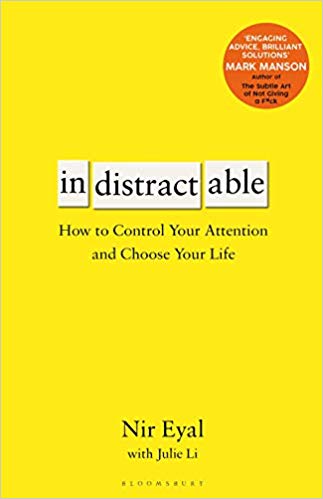 Indistractable How to Control Your Attention and Choose Your Life Paperback – 20 Sep 2019
Indistractable How to Control Your Attention and Choose Your Life Paperback – 20 Sep 2019
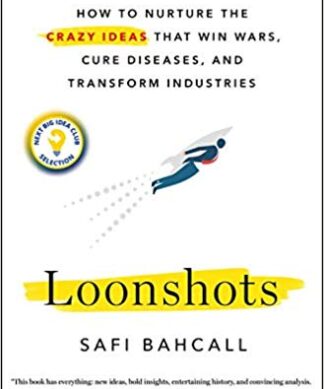 Loonshots: How to Nurture the Crazy Ideas That Win Wars, Cure Diseases, and Transform Industries Hardcover – 19 Mar 2019
Loonshots: How to Nurture the Crazy Ideas That Win Wars, Cure Diseases, and Transform Industries Hardcover – 19 Mar 2019
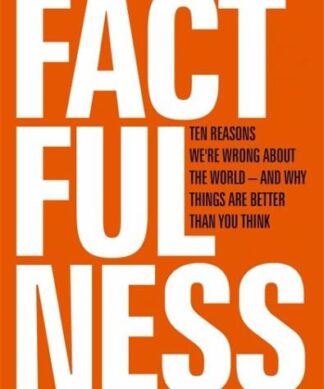 Factfulness (English, Hardcover, Hans Rosling)
Factfulness (English, Hardcover, Hans Rosling)
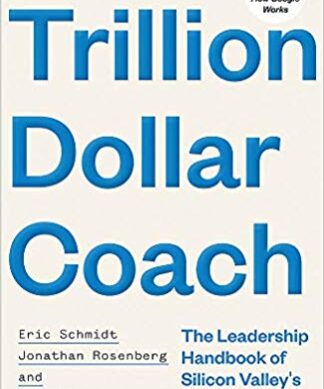 Trillion Dollar Coach: The Leadership Handbook of Silicon Valley’s Bill Campbell
Trillion Dollar Coach: The Leadership Handbook of Silicon Valley’s Bill Campbell
 From The King’s Table to Street Food : A Food History of Delhi
From The King’s Table to Street Food : A Food History of Delhi
 Royal-ish : Lily's Adventures in Bagradoo
Royal-ish : Lily's Adventures in Bagradoo
 Balidan : Bharat ke para special forces ke mahan yoddhaon ki kahaniyan
Balidan : Bharat ke para special forces ke mahan yoddhaon ki kahaniyan
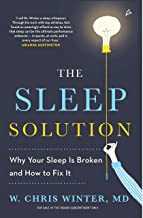

Reviews
There are no reviews yet.